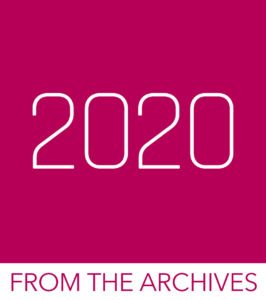 On stage at the 17th annual CFOs & COOs Forum in New York in 2020, Carl Thoma cut an unassuming figure – and he prefers it that way. “Private equity and venture capital should be represented by the companies that we back, and we’re just kind of those silent investors that nobody knows about, because our success is predicated on the success of the companies,” he said.
On stage at the 17th annual CFOs & COOs Forum in New York in 2020, Carl Thoma cut an unassuming figure – and he prefers it that way. “Private equity and venture capital should be represented by the companies that we back, and we’re just kind of those silent investors that nobody knows about, because our success is predicated on the success of the companies,” he said.
“I think sometimes our industry has gotten so big… we’ve gotten a little bit more kind of self-centered.
“We’ve got to really go back to promoting our portfolio companies” by telling these stories in local communities. Thoma gives the example of one of the firm’s portfolio companies, Cleveland-based Hyland, which the firm has been invested in for 12 years.
“They’ve got a lot of coverage in Cleveland, everybody loves them, [they are] the largest technology employer there, they give back to the community. But hundreds of hours have gone into telling their story in Cleveland.”
Considerably larger funds – plus the expansion into new fund families, such as credit and small-cap – lead to greater complexity in everything from ESG reporting to taxes, he told delegates.
“Our investors are more demanding than ever. That transparency, openness, accuracy, quick access to any information they want is very demanding. They expect more out of a larger institution than they do a smaller one – which is appropriate, we’re getting more management fees.”
All this means that “you can’t survive as a larger fund unless you have an A-plus operations and financial team.”
As an industry practitioner with huge funds, it is perhaps unusual that Thoma has sounded a note of caution about investors committing too much of their portfolios to illiquid assets.
“The more money that gets committed to private equity, you have to balance that across your portfolio in making sure you’ve got liquidity in other pockets,” Thoma said.
“Sure, there’s a lot of secondaries funds being developed, but I think to me, the biggest risk of [the growth in private equity] is the fact it imposes illiquidity; in some portfolios, 20-30 percent of their portfolio is now in illiquid assets. And I sense some managers are not thinking enough about the lack of liquidity that’s creeping into their portfolio. They’ve got to try to balance that better.”


 If you do not receive this within five minutes, please try to sign in again. If the problem persists, please email:
If you do not receive this within five minutes, please try to sign in again. If the problem persists, please email: